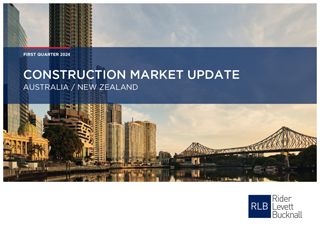Q1 2024 Oceania Market Construction Update [Christchurch]: Trade pricing is stabilising due to heightened competition, which could lead to more predictable project costs.
Following the significant price escalations during the COVID period, material prices have now stabilised. However, while general inflation seems to be settling, supply chain disruptions continue to pose a risk due to geopolitical factors.
Immediate labour shortages are less concerning than in recent years, thanks to declining activity and local expectations.
The effects of the recent governmental change are still unfolding, with increased fiscal restraint leading to a pause and reassessment of previously approved projects.
Although there is a reasonable workload currently in place, prospects appear to be varied across different sectors.
Key factors impacting escalation
- The outcome of the General Election and increased fiscal restraint are impacting forecasts for the industry, potentially leading to reduced growth and investment
- Trade pricing is stabilising due to heightened competition, which could lead to more predictable project costs
- Residential construction activity has slowed in recent months, indicating a potential downturn in this sector
- A significant ongoing school program has been paused under the new government, delaying educational infrastructure developments
- Variations in trade pricing for large and complex projects reflect differing risk assessments and the clarity of future workload, affecting project budgeting and planning
- While large pipelines of infrastructure work are expected nationally in the coming years, there is uncertainty about the scale of these projects in various regions, which may lead to uneven development and investment
Photo: RLB provided quantity surveying services on Specialist Mental Health Services, Hillmorton Hospital, Christchurch, a Health New Zealand development.
FURTHER INFORMATION:



